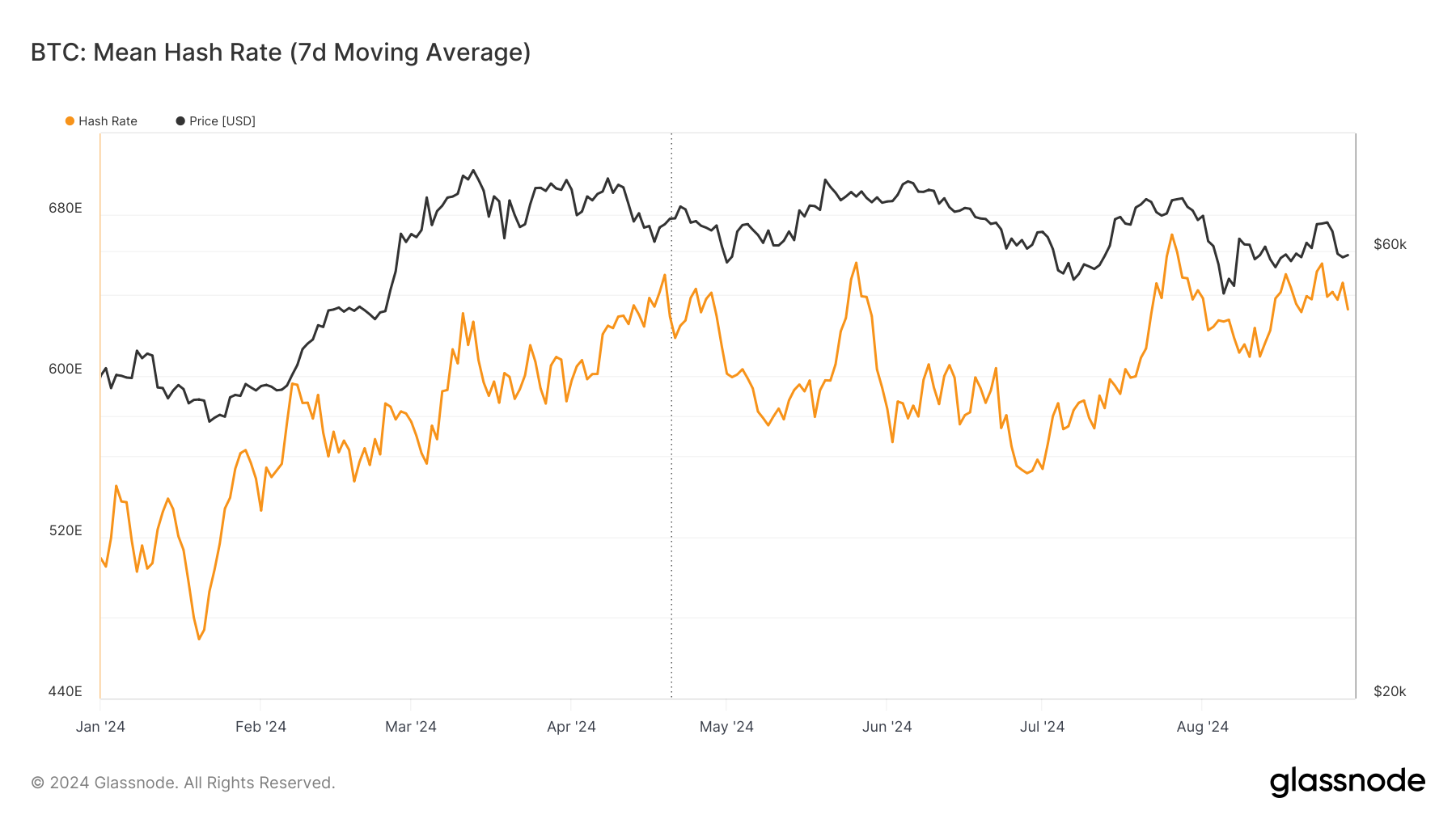Key Takeaways
- XRP has dropped more than 35% from its local high.
- The drop coincides with a stronger US dollar.
- The token could decline further due to a mix of bearish technical, fundamental, and on-chain factors.

YEREVAN (CoinChapter.com) — XRP (XRP) price has dropped over 35% more than a month after establishing its year-to-date (YTD) high of $0.93. And it appears the token has more room to decline in August.
Here are three reasons why.
1. XRP Price Enters ‘Bear Flag’ Breakdown Stage
On Aug 15, the XRP price broke below its critical trendline support, a level that constitutes a bear flag pattern.
Bear flags are bearish continuation patterns. They form when the price consolidates sideways or upward after a strong downtrend — and resolve once the price breaks below the lower trendline and falls by as much as the previous downtrend’s height (aka flagpole).
XRP has entered the bear flag’s breakdown stage, eyeing a further decline toward $0.54 if the pattern plays out as intended. In other words, a 10% drop by August.

Interestingly, the bear flag’s downside target coincides with a support confluence comprising an ascending trendline, a historical resistance area, and XRP’s 200-day exponential moving average (200-day EMA; the blue wave).
2. Federal Reserve’s Rate Suspense
The crypto market has entered a correction mode amid concerns that the Federal Reserve may raise interest rates again.
In July, the Fed officials raised the benchmark rates by 25 basis points, raising hopes that it would be the final hike in 2023. However, the Fed chief, Jerome Powell, vomited a hawkish tone on fighting inflation in the press meeting afterward, making it clear that another rate hike is possible.
The price of XRP has crashed 20% since the meeting, coinciding with a strengthening US dollar index (DXY). A stronger dollar is typically bearish for the crypto market.

The next Fed meeting is scheduled for Sep 19-20, with the CME FedWatch Tool anticipating a rate pause. Until then, the crypto market risks staying on its downside course, taking XRP prices alongside.
3. XRP Whale Sentiment
Financial whales typically dictate a market’s direction. And XRP’s price response to their accumulation and distribution behaviors is no different.
Data tracking whale wallets show that the richest-of-the-richest XRP addresses — those who hold more than 1 billion tokens — have upped their supply by 1% in the last 24 hours. Their holdings were flat for days previously.
But these whales are not necessary investors. Instead, these addresses may belong to exchanges, trusts, custodians, etc., which prompts analysts to look for more reasonable address cohorts to determine the XRP price’s next direction.

For instance, the supply held by XRP’s addresses with a balance between 100 million and 1 billion tokens has declined 2.26% from its local top in late July. The impact is visible on the neighboring cohorts, with the supply of the 10 million-to-100 million XRP balance cohort rising 0.75% in the same period.
Simply put, most whales have recently distributed XRP tokens during the price decline — a bearish indicator.



